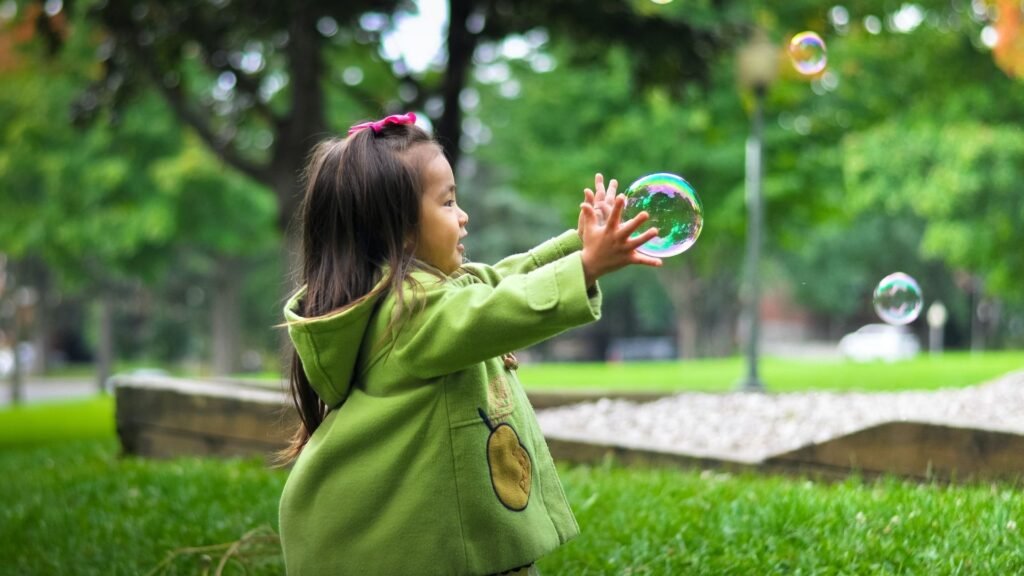Outdoor play is not just about fun and games; it’s crucial for children’s physical health and overall development. Engaging in physical activities outside offers a range of benefits that contribute to their growth and well-being. This article explores the many advantages of outdoor play and how it positively impacts children’s physical health.

1. Enhancing Physical Development
A. Building Strength and Coordination
- Muscle Development: Activities such as climbing, running, and jumping strengthen muscles. Outdoor play involves various movements that contribute to muscle growth and physical strength.
- Improving Coordination: Balancing on beams, catching balls, and other outdoor activities enhance hand-eye coordination and fine motor skills, which are vital for everyday tasks.
B. Promoting Healthy Growth
- Bone Health: Weight-bearing activities, like running and jumping, help strengthen bones. Exposure to sunlight during outdoor play also aids in vitamin D production, essential for bone health.
- Cardiovascular Fitness: Engaging in aerobic activities like biking or playing tag improves cardiovascular health, benefiting the heart and lungs.
2. Encouraging Active Lifestyles
A. Reducing Sedentary Behavior
- Alternating Screen Time: Outdoor play offers a healthy alternative to sedentary activities such as watching TV or playing video games. It helps reduce the time children spend on screens.
- Fostering Healthy Habits: Regular outdoor play encourages active lifestyles, reducing the risk of obesity and related health issues by establishing lifelong habits of physical activity.
B. Boosting Energy and Vitality
- Increasing Endurance: Activities like hiking and running build stamina and endurance, helping children feel more energetic and less fatigued throughout the day.
- Enhancing Mood: Physical activity releases endorphins, which improve mood and reduce stress. Outdoor play contributes to a more positive and energetic outlook.
3. Supporting Cognitive and Social Development
A. Stimulating Cognitive Growth
- Problem-Solving Skills: Outdoor play often involves overcoming challenges and exploring new environments, stimulating cognitive development and problem-solving abilities.
- Creativity and Imagination: Open spaces and nature encourage imaginative play and creativity, allowing children to invent games and scenarios that enhance cognitive skills.
B. Promoting Social Skills
- Teamwork and Cooperation: Playing with peers outdoors involves teamwork and communication. These social interactions help children develop essential social skills such as sharing and collaborating.
- Building Confidence: Success in outdoor play activities boosts self-esteem and confidence. Children learn to take risks and face challenges, contributing to their social and emotional growth.
4. Improving Overall Well-Being
A. Enhancing Mental Health
- Reducing Stress: Time spent outdoors and engaging in physical activities can lower stress and anxiety levels. Natural environments have a calming effect on children.
- Encouraging Relaxation: Outdoor play provides a break from structured indoor activities, helping children relax and recharge.
B. Strengthening Immune System
- Exposure to Nature: Interaction with nature and outdoor environments can strengthen the immune system, making children more resilient to illnesses.
- Physical Activity Benefits: Regular exercise supports overall health and boosts the immune system, reducing the likelihood of infections and chronic conditions.
5. Practical Tips for Encouraging Outdoor Play
A. Create Safe Play Spaces
- Designate Play Areas: Set up safe and engaging outdoor play areas where children can explore and play freely. Ensure these areas are free from hazards and offer a variety of activities.
- Supervise Play: Provide adequate supervision to ensure children play safely and follow basic safety guidelines.
B. Incorporate Outdoor Activities
- Organize Games: Plan and organize outdoor games and activities that encourage physical movement and teamwork, such as sports, scavenger hunts, and nature walks.
- Explore Nature: Take children on nature excursions like hiking trails, parks, or beaches to expose them to different environments and activities.
C. Set a Routine
- Regular Outdoor Time: Establish a routine that includes regular outdoor playtime. Aim for at least 30 minutes to an hour of active play each day.
- Be a Role Model: Participate in outdoor activities with your children to model an active lifestyle and make outdoor play a fun, shared experience.
Conclusion
Outdoor play is essential for children’s physical health, offering numerous benefits that support their development and well-being. From building strength and coordination to encouraging active lifestyles and enhancing overall mood, engaging in outdoor activities contributes significantly to a child’s health. By fostering regular outdoor play, parents and caregivers can help children lead healthier, happier lives.

